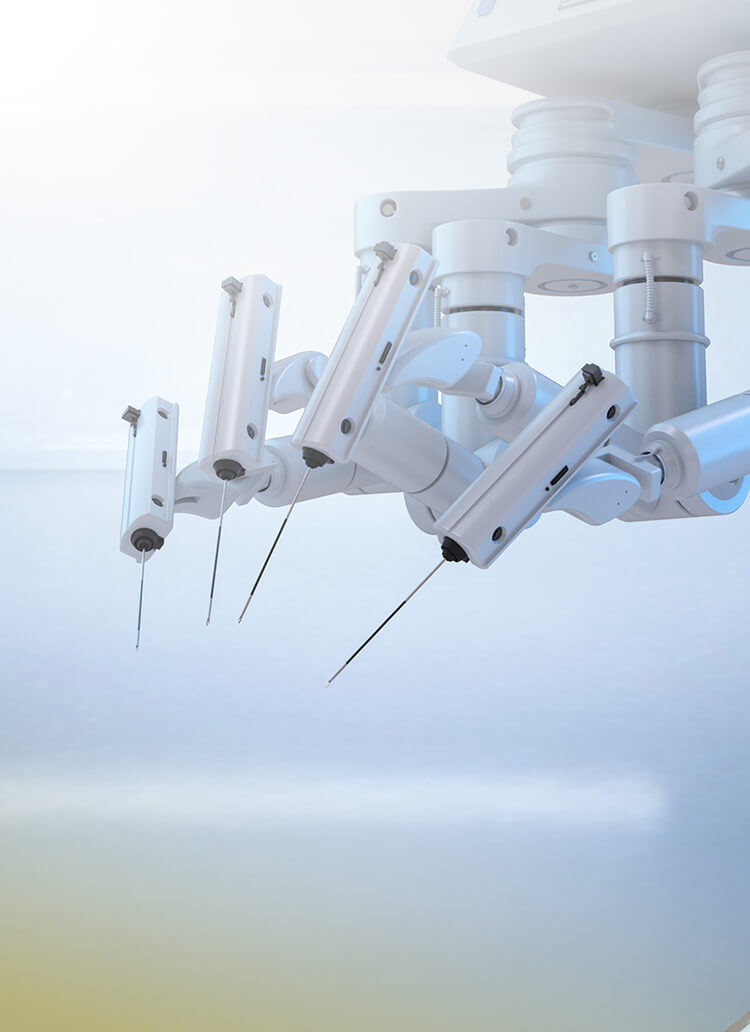Your local home for world-class fertility care
Our boutique fertility clinic is located in northeast Louisville, Kentucky, convenient to Bardstown, Bowling Green, Lexington, Owensboro, Richmond, and Southern Indiana.

For many patients with anatomical variants or risk factors for infertility, surgical treatments are available to address disorders of the uterus, fallopian tubes, or ovaries and help to optimize future reproductive function.
Most reproductive surgery is minimally-invasive, involving small incisions or none at all, and can be done through an endoscope on an outpatient basis. An endoscope involves either a laparoscope (a tiny telescope inserted into the abdomen) or a hysteroscope (a tiny telescope inserted into the uterus). Minimally-invasive surgery is associated with less pain and lower complication rates compared to traditional methods and typically allows patients to return back to normal activities within a few days.
At Kentucky Fertility Institute (KFI), our experienced physicians are trained to perform the following pelvic or reproductive surgeries:
Tuboplasty: This procedure aims to address blockages or scarring in or around the fallopian tube(s), which can prevent the sperm and egg from meeting for fertilization. Blockage or scarring may result from a past pelvic infection, inflammation (including endometriosis), or previous pelvic surgery. Both laparoscopic and hysteroscopic procedures can be considered, depending on the nature of a patient’s condition.
Uterine Septoplasty: Uterine malformations occur during fetal development and can affect up to 3% of women. These abnormalities can lead to symptoms such as the absence of menstrual cycles (amenorrhea), infertility, recurrent pregnancy loss, and chronic pelvic pain. The most common type of uterine malformation is a uterine septum, which can be easily removed using a hysteroscope to improve the chances of a successful pregnancy.
Excision of Endometriosis: Endometriosis affects at least 15% of women and is more common in women with fertility issues. It is an inflammatory condition in which the tissue that usually lines the uterus grows outside the uterine cavity in abnormal places like the ovaries, fallopian tubes, and abdominal cavity. Symptoms can vary based on where the extra tissue grows and may include pelvic pain (especially during the menstrual cycle), painful intercourse, and infertility. Treatment options can include medications, minimally-invasive surgery–or a combination of both, depending on a patient's clinical symptoms and therapeutic goals.
Myomectomy for Fibroids: Fibroids are common benign growths of muscle tissue that form in the wall of the uterus. Depending on their size and location, they can contribute to infertility and cause a number of bothersome symptoms, including heavy menstrual bleeding and pelvic pain. When surgery is indicated, most fibroids can be removed using hysteroscopy or laparoscopy. In some cases, advanced approaches with robotic assistance or open surgery may be needed.
Ovarian Cystectomy: Ovarian cysts are fluid-filled sacs that are usually benign. However, they can be a source of pelvic pain and infertility for some women. Most types of ovarian cysts can be safely removed with a laparoscope.
Polypectomy: Uterine polyps form due to overgrowth of cells in the lining of the uterus (endometrium). While usually benign, they are a frequent cause of infertility and irregular bleeding between menstrual cycles. Polyps can be safely removed with a hysteroscope and help to restore normal fertility.
Reproductive surgery, like any medical procedure, comes with risks for potential complications. However, since most reproductive surgeries are minimally-invasive, the likelihood of a significant complication is relatively rare. Risks to be aware of include:
Reactions to anesthesia (nausea, headaches)
Bleeding during or after surgery
Formation of adhesions or scar tissue
Damage to nerves, blood vessels, or abdominal organs
Deep vein thrombosis
At KFI, our providers perform surgical procedures at a local hospital or surgery center under general anesthesia. Our team will explain each step of the process, guide you on how to prepare for your surgery and recovery, and ensure that all of your questions are answered.
Your fertility treatment plan will depend on your individual history and treatment goals. Our expert team at KFI will help to assess whether a surgical procedure should be considered as a part of your reproductive care.
Ultimately, the goal of reproductive surgery is to help you become pregnant. While there are no guarantees, addressing structural issues or pathologies that may hinder pregnancy is intended to help maximize the chance of successful pregnancy for our patients.
Reproductive surgery can effectively diagnose and treat conditions that may be preventing you from conceiving. At KFI, our experienced team can guide you through each step to develop a treatment plan that best addresses your needs. Contact us today for more information or to schedule an appointment.
Our boutique fertility clinic is located in northeast Louisville, Kentucky, convenient to Bardstown, Bowling Green, Lexington, Owensboro, Richmond, and Southern Indiana.

